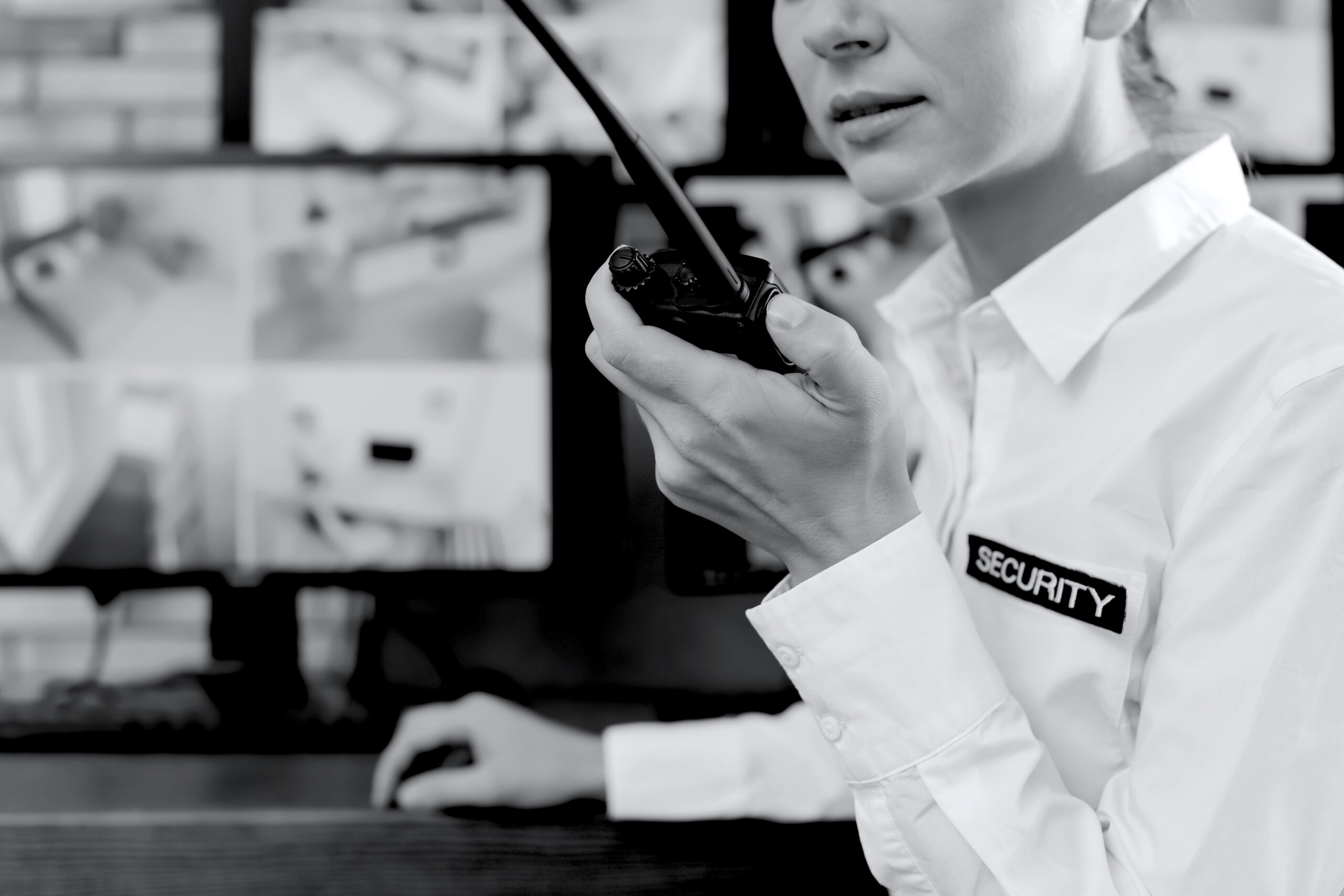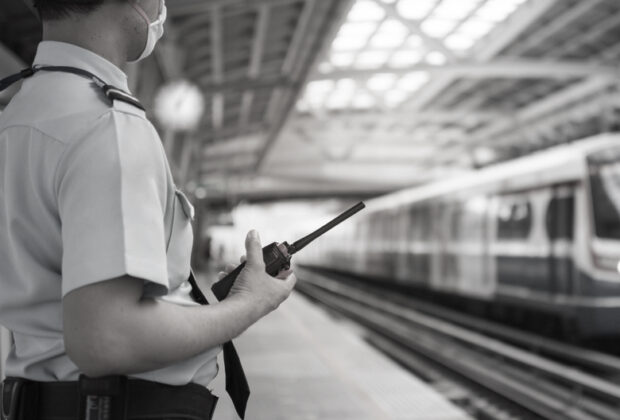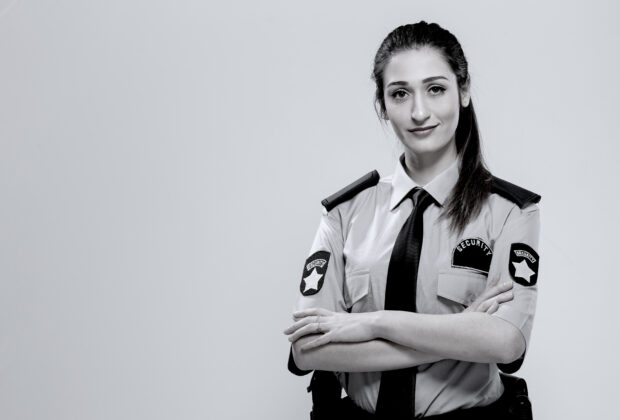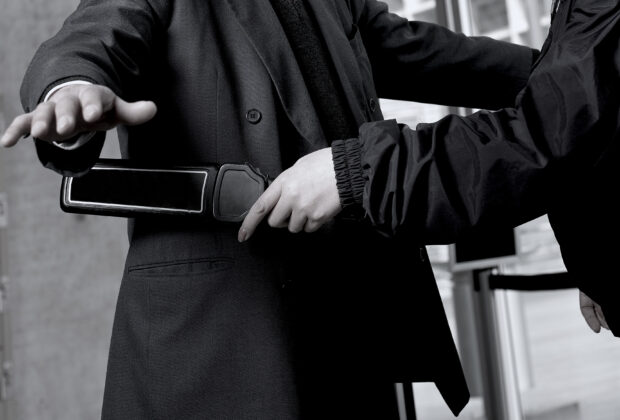Security guards or agents are needed in many different settings, whether it be commercial buildings, parking enforcement, healthcare facilities or hospitals, correctional facilities, or airport security. While the main duties of a security guard in Canada can be similar among these different roles, specific differences in job expectations arise depending on what field of security you choose. Let’s explore what the main duties of common security guard jobs are so you have an idea of what to expect before choosing a role that works for you.
Commercial building security guard
Security guards for commercial buildings, like offices or shopping malls, often have the responsibility to keep track of a large area that contains lots of people. With any large commercial building, like the ones you’d see in the downtown core of most Canadian cities, there are often multiple entrances and exits that are attached to large parking lots. Multiple buildings are beside each other, and there’s likely a constant flow of people in and out of each building during standard office or retail hours in that area.
In a commercial security guard role, you would most likely be working with a team of security guards at all times and be required to regularly communicate with your colleagues to ensure that everyone knows what’s happening in different areas of the premises.
It’s also likely that there are multiple security personal on-site at each different building providing security services in different roles; the most common being mobile patrol, dispatch, and access control.
Mobile patrol security guards walk the exterior and interior areas of a building. With larger properties, a single guard or team of two could be assigned to a particular area. To patrol effectively and cover more ground in a shorter time, a mobile guard might drive around the exterior of a building in a security vehicle. Sometimes mobile patrol guards are responsible for monitoring parking lots as well.
Security dispatchers often work behind the scenes in more of a support role, where they have a “bird’s eye view” of the entire premises through electronic monitoring. Typically, a security dispatcher sits in a room with multiple computer monitors that show live video feeds from security cameras placed in strategic locations around the premises. Dispatchers also act as a central communication point for the security teams on the ground. Because they can watch multiple locations at one time, security dispatchers are able to alert agents on the field to a particular area when a situation develops, or further attention is needed.
Access control personnel are tasked with making sure only authorized individuals are entering an area. For instance, this role would typically sit at a front desk and control entry through some kind of prescreening process, often by asking for identification and/or confirming the reason for entry.
Parking enforcement
Parking enforcement security is used for public parking lots near commercial areas and events, such as office buildings, campuses, and hospitals, but you may see enforcement used for private residential parking lots as well.
In general, the main goal of parking enforcement is to control access to the area, do security patrols, and provide electronic or manual ticketing services. In some cases, like parking areas on school campuses or office buildings, parking enforcement provides safe walk services (escorting individuals to their vehicle after hours or to avoid a potentially dangerous situation).
Hospital or healthcare security guard
Hospital or healthcare security guards are responsible for the safety and integrity of the building and surrounding grounds. Hospital security guards perform several different roles, from monitoring people who come in and out of the building, to ensuring the safety of patients and medical staff by patrolling the area or controlling access to certain areas of the facility. Often, hospital security work rotating shifts including overnight. Security guards in medical facilities also play an important role in screening visitors and medical staff for communicable diseases or sources of transferable infection that could compromise the integrity of the facility.
As a security guard in a hospital or healthcare facility, you will likely be exposed to more emergency situations and situations where you need to act quickly to keep those around you safe. As a result, you will most likely be expected to have a certain level of first aid training and WHMIS training, and be able to demonstrate your ability to deal with people in distress.
Correctional officer
Correctional officers also play an important role in the security industry. As a correctional officer, you’ll likely be working rotating shifts as a correctional facility needs security 24 hours a day, seven days a week. A correctional officer has the unique role of balancing the security of the facility with the custody and rehabilitative needs of an inmate. As with most security jobs, de-escalation training is a must for this role.
Airport Security
Airport security professionals need to be prepared for a fast-paced career where being able to problem solve and make decisions quickly is the key to success. Airport security guards can work inside or outside of the airport facility and perform a wide variety of tasks. For instance, some security officials are responsible for checking flight terminals and baggage areas for suspicious activity, and sometimes use dogs that are trained in sniffing out various contraband substances to check baggage. Other security positions might include screening passengers and their belongings before they board a plane or performing random security checks on individuals in the airport.
There are also airport security positions that control access to restricted areas, such as traffic control towers, the airfield, and plane bunkers.
Choosing a career in security
Even basic security guard training gives you access to a wide variety of careers in security. The great thing about the security industry is that even if you start a career in a more specialized area of security, chances are most of the skills you learn on the job can be transferred to another type of security position. The versatility of a career as a security guard knows no bounds, and with so many different types of positions available, you’ll be sure to find a job that fits with your individual career goals.




Comments are closed.